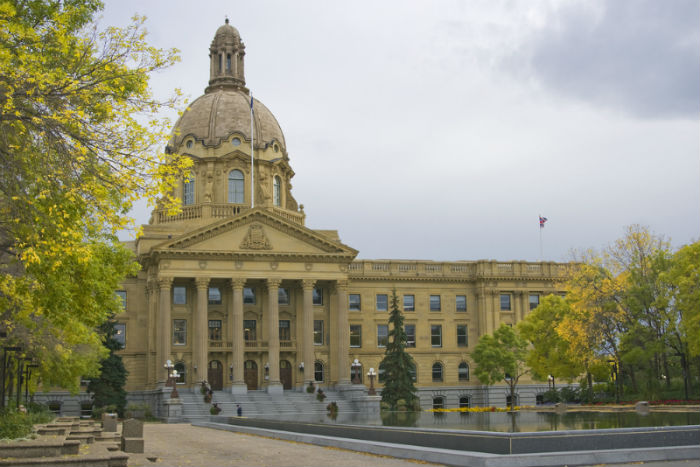'This is a government that wants to bring in more chaos and instability with respect to labour relations': Finance critic

EDMONTON (CP) — Alberta is proposing new legislation that could affect where doctors work and how much they get paid as well as allow the government more freedom to bring in replacement workers for union jobs.
The amendments are contained in two omnibus bills introduced Monday by Finance Minister Travis Toews.
The bill proposes that the government be allowed to cancel its master agreement with the Alberta Medical Association and would give the province power to compel new doctors wanting to bill the health system to work in rural areas.
``We're looking forward to working with physicians in this province to find a fiscally responsible way forward,'' Toews told reporters.
``But ultimately we need to ensure the minister of health has the ability to make the decisions required to ensure fiscal responsibility and accountability to Alberta taxpayers.''
Premier Jason Kenney's United Conservative government introduced a budget last week that reduces spending and promises program and job reviews to get multibillion-dollar budget deficits back in balance by 2023.
The government has been relying on a panel report that said Alberta's doctors are making far more than other provinces and the main barrier to pay reform is the master agreement.
The panel, chaired by former Saskatchewan finance minister Janice MacKinnon, said that health spending, which makes up more than 40 per cent of the provincial budget, needs to be reduced.
The report also said that physician costs last year were more than $5 billion — about 25 per cent of the health budget — and have grown 300 per cent in Alberta in the last two decades versus 200 per cent in other provinces.
It said a key driver of the increase is that doctors are paid on a fee-for-service basis, which shelled out $413,000 on average per doctor in 2017 — about one-third higher than the national average.
The report also said Alberta has been lagging behind on physician pay reform and that the master agreement with the medical association is difficult to amend.
The current agreement is set to expire March 31. The bill suggests the government unilaterally end the master agreement if negotiations with the doctors group stall.
Health Minister Tyler Shandro has said the province wants to explore ways to get more physicians to rural areas such as the town of Bonnyville, where there are 600 patients on a wait list for a doctor.
The bill would allow Shandro to set limits on dispensing future billing ID numbers to physicians starting in spring of 2022 and could tie them to having doctors work in rural areas.
The AMA, in an email, declined to comment immediately, saying they want to further study the proposed changes.
The MacKinnon report also said action must be taken to reduce public-sector compensation, which comprises more than half of the operating budget.
The government said in its budget last week that it will look to attrition to reduce the number of workers.
The province is heading into contract negotiations with major unions and the bill would give the government the option to bring in replacement workers to fill essential services during talks.
Currently, union members must be used to fill essential services, but Toews said the proposed change is a backstop measure to further ensure there is no disruption to public service in case of job action.
``(The amendment) doesn't negate our desire to work very constructively with the public sector on finding solutions,'' said Toews.
But NDP finance critic Shannon Phillips said the moves foreshadow hardline talks and actions toward unionized public sector workers.
``This is a government that wants to bring in more chaos and instability with respect to labour relations,'' said Phillips.
``That is indeed very troubling for everyone who keeps us safe, who keeps us healthy, who teaches us or our kids, who tests our water (and) who ensures our land and air are appropriately monitored. All of those folks and more will be affected by this.''
Last week's budget did not set aside any money for public-sector salary increases.
It also projects an overall $8.7-billion deficit on $50-billion in spending.




